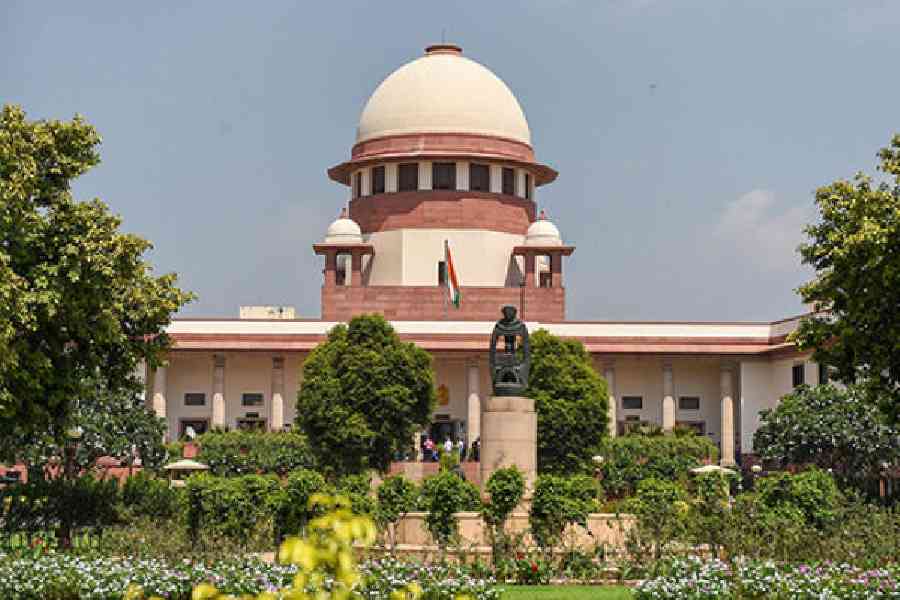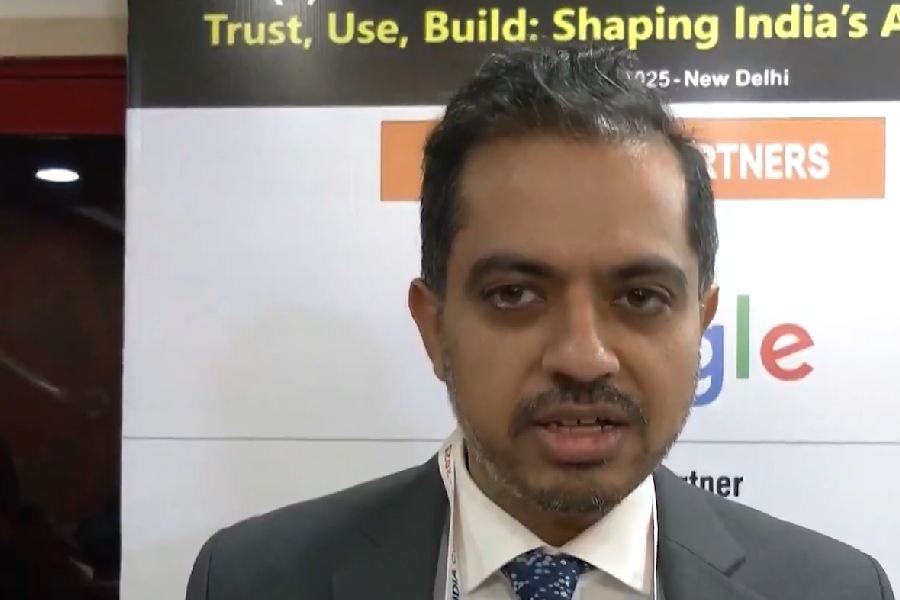A five-judge constitution bench on Thursday held that no timelines can be prescribed for the President or governors to decide on bills passed by legislatures, and said the two constitutional functionaries enjoy discretion in withholding or granting assent to bills.
The Supreme Court, however, emphasised that governors cannot hold on to bills without a decision for “perpetuity”.
Several non-BJP states, such as Kerala and Bengal, have petitioned the apex court challenging their governors’ decision to hang on to various bills passed by their Assemblies, and alleging political motives behind such stalling.
A two-judge bench, of Justice J.B. Pardiwala and Justice R. Mahadevan, had on April 8 set a one-month deadline for governors to decide on the bills presented to them.
Following this judgment, the Centre had, through a presidential reference made by President Droupadi Murmu on May 13, sought clarifications from the top court on the governors’ powers to decide on bills.
On Thursday, the bench of Chief Justice B.R. Gavai, Justice Surya Kant, Justice Vikram Nath, Justice P.S. Narasimha and Justice A.S. Chandurkar answered 11 of the 14 questions in the reference while finding 3 of the queries irrelevant.
The bench rejected the challenge to the maintainability of the presidential reference from states such as Kerala, Tamil Nadu and Karnataka.
It clarified that “the governor has no option to withhold a bill simpliciter. Therefore, it is not that the discretion so conferred allows a situation wherein the governor could frustrate a bill in perpetuity.”
The constitution bench said a governor has three options — to assent to the bill, withhold assent and return the bill to the legislature for reconsideration, or reserve the bill for the President’s consideration.
It said the governor has the discretion to choose any of the three options, having considered the advice offered by the council of ministers and keeping in mind the governor’s duty to protect the Constitution.
However, the governor is not strictly bound by the aid and advice of the council of ministers, the bench said.
Not ‘perfunctory’
The powers of the governor are neither “unfettered” nor “perfunctory”, the bench said.
“We do not think that this interpretation confers any unfettered powers on the governor. In fact, it does not in any way deviate from the concept of a responsible constitutional government,” the bench said.
“We are in agreement that it is the elected government (the cabinet) that should be in the driver’s seat, and that there cannot be two executive power centres in the State, as held in Ram Jawaya Kapur & Ors v State of Punjab (earlier judgment).
“However, we find that these arguments relegating the governor and President to a perfunctory role, i.e., merely the formal head comparable to the Crown in England, oversimplifies the complex scheme of our written Constitution.
“The constitutional vision is of a responsible government which is not merely synonymous with the cabinet but is one where the governors and the President have been bound by specific functions and roles in our written Constitution, unlike the Crown.”
Judicial review
The apex court underlined that the judiciary has the power to review governors’ functioning if there are complaints of inaction against them. However, this judicial remedy can be invoked only after a legislation has become an act and not when it is at the stage of a bill.
“There is no denying thatjudicial review, too, is a partof the basic structure of the Constitution of India. This judicial review, however, is not an unbridled scope that can negate or destroy the separation of powers doctrine,” the bench said.
“Further, we are of the firm view that judicialreview, scrutiny and the jurisdiction of courts can be invoked only once the bill becomes law.”
It added: “We are of the considered opinion thatwhile the merits of action taken by the governor under Article 200 cannot be looked into by courts — inactionthat is prolonged, unexplained and indefinite will certainly invite limited judicialscrutiny.”
The court clarified: “The courts are empowered to grant a form of a limited direction, to the governor, to take action… within a reasonable time limit, without making any observations on the merits of the exercise of discretion. It would thus serve the purpose ofasking the governor to exercise his function under Article 200, rather than substituting his role.”
Citing India’s system of checks and balances, the bench advocated that people holding different constitutional offices adopt an approachof “dialogue, reconciliation and balance”.
“A dialogic process, which has the potential to understand and reflect on conflicting or opposing perspectives, to reconcile and to move forward in a constructive manner, is an equally potentcheck-and-balance system that the Constitution has prescribed,” it said.
“Once this perspective is grasped, the persons who occupy various constitutional offices or institutions willalso do well to ingrain inthemselves that dialogue, reconciliation and balance, and not obstructionism isthe essence of constitutionalism that we practice in this Republic.”
The presidential reference was made under Article 143, which allows the Supreme Court to advise the President on any issue touching on the Constitution.
Rejecting the non-BJP states’ challenge to the maintainability of the presidential reference, the court said: “The exercise of this advisory function is a constitutional dialogue between the executive and the judiciary.
“The court cannot shirk away from its responsibilityto iron out constitutional creases, to authoritatively clarify the roles of constitutional institutions, when doubts as to their roles and powers are raised.”










